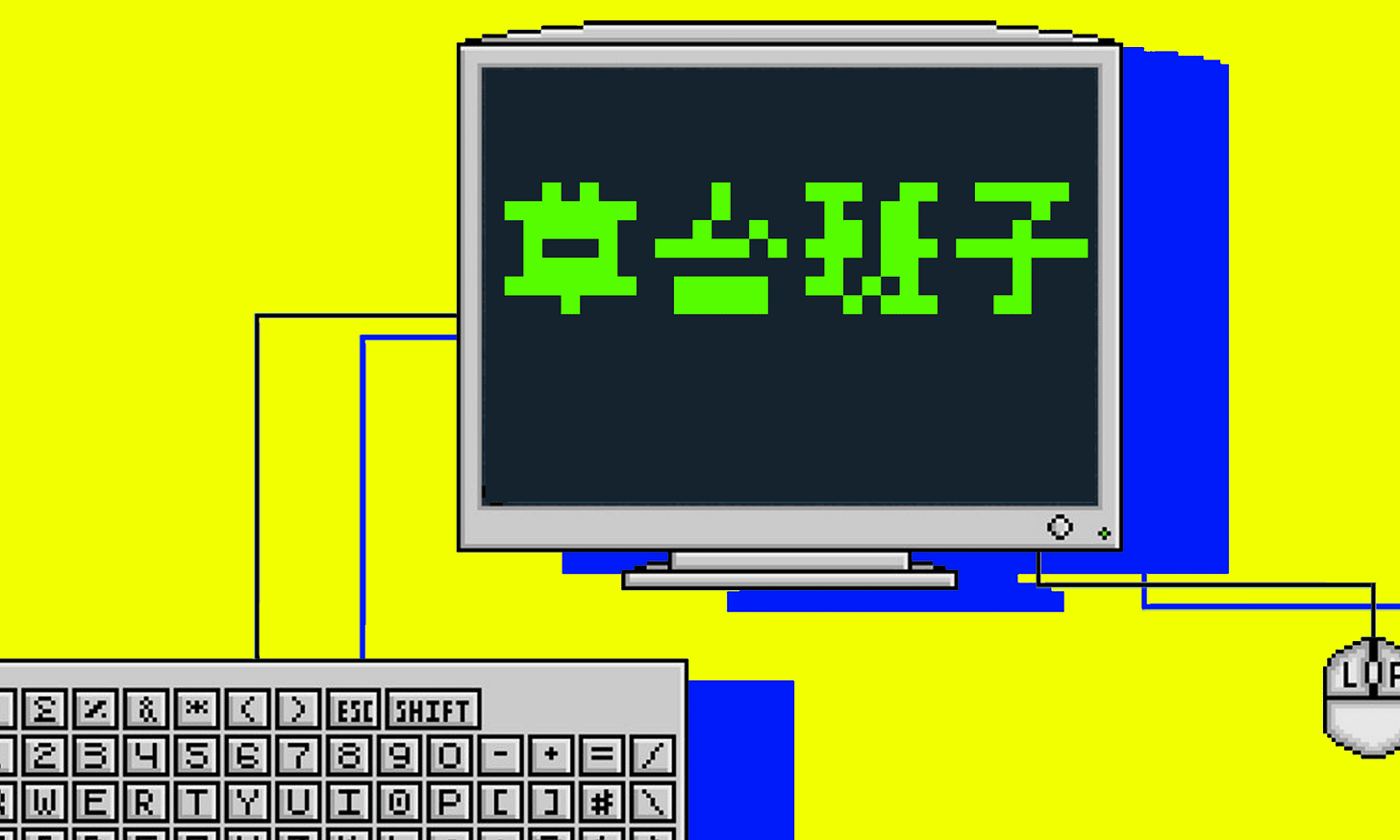Welcome to RealTime Mandarin—a multimedia resource to immerse you in the latest Chinese language trends, inspire you to practice and improve your Mandarin every week, and empower you to communicate with confidence.
Subscribe now to get the next issue straight to your inbox!
As the year comes to a close, several lists of the “Top Buzzwords of the Year” have been released by publications in China.
On 2 December, Yaowen Jiaozi (咬文嚼字), a magazine that covers the misuse and abuse of language in Chinese society, published its year-end list of “Top 10 Buzzwords of 2024”.
On 12 December, Language and Character Weekly (语言文字周报), and online magazine focussed on language trends, released its top ten list. On the same day, the National Language Resources Monitoring and Research Center (国家语言资源监测与研究中心), a research institute affiliated with the Ministry of Education, published its own take on popular buzzwords of the year. And then on 18 December, 36Kr, a business media outlet, published a list by New Weekly (新周刊), of 33 internet slang words which were popular through the year.
There is some overlap among the four lists. Only one phrase, “work odour” (班味), appears on all four. While three others are on three of the lists. These are: “just so unexpectedly” (水灵灵地×××), “relaxed under pressure” (松弛感), and “Metropolitan vibes” (city不city).
The lists showcase different types of buzzwords. The Yaowen Jiaozi and National Language Resources Monitoring and Research Center lists focus more on official language and political propaganda. Often regarded as the "official" list, Yaowen Jiaozi selections are prominently featured in state media outlets. In recent years, their end-of-year "buzzwords" have leaned heavily toward political catchphrases and jargon, straying from the genuinely popular expressions that resonate with the public. We’ve included only one such phrase in our collated list below.
The Language and Character Weekly list looks more at buzzwords used on the Chinese internet. For this reason, we’ve featured that list as our preferred "official top ten".
In the second half of this post, we’ve gathered another twelve phrases from the other lists, bringing you a curated collection of 22 words and phrases. We’ve tried to focus on phrases which are most useful, and could be deployed in general life.
Of course, all these phrases originate online behind the Great Firewall, meaning they might not always resonate in “real life” or certainly not outside of Mainland China. So it’s important to know your audience!
These “official” end-of-year lists are subject to censorship and media control, so that’s why next week, we’ll continue with our annual tradition of sharing our own "official-unofficial" list of favourite phrases for 2024—an independent take on what people are really talking about in the Chinese-speaking world.
🎧 Podcast preview: In today’s Member Podcast, we dive into some of our favourite phrases from this year’s lists, all tied to the shifting attitudes of young people toward work: “work odour” (班味 bān wèi), “living life to the fullest despite limited means” (没福硬享 méi fú yìng xiǎng), and “random replies” (已读乱回 yǐ dú luàn huí). Tune in at 7 minutes to explore how these expressions reflect modern life and how to use them in everyday conversations!
Top Ten Buzzwords of 2024
1. “Appear (very) sneaky”
偷感 (很重) tōu gǎn hěn zhòng
他在开会时总是很低调,偷感很重,生怕引起别人的注意 - Afraid of drawing attention from others, he always keeps a low profile during meetings, as if he has something to hide.
Background: This phrase describes someone who is acting cautiously, discreetly, avoiding attention, or from being misunderstood. It’s not always pejorative, but reflects a level of carefulness by someone in an unfamiliar environment, or who lacks confidence.
2. “Unprofessional team”
草台班子 cǎo tái bān zi
他们的团队虽然没有很多资源,感觉就像一个草台班子,但大家都很努力,最终还是完成了任务 - Although their team lacked resources and looked like a makeshift troupe, everyone worked hard and eventually completed the project.
Background: Originally referring to small, rural theatre troupes with limited resources, the phrase has come to describe badly organised or low-skill teams. In 2024, its usage surged as a metaphor for organisations which lack order, consistency, or professional structure, like when a private school served rotten pork to its students in October this year.
3. “Work odour”
班味 bān wèi
他最近经常加班,感觉整个人都弥漫着班味,完全没有活力 - He’s been working overtime lately and reeks the smell of work—he's completely drained.
Background: Describes the tired, worn-out appearance and demeanour of office workers, their dull expressions, unkempt clothing, and a lack of energy. It’s a humorous take on the pressures of work, reminding people to seek better work-life balance and prioritise health. It’s reminiscent of another phrase we’ve seen a lot this year: “workhorse” (牛马 niú mǎ).
4. “So what”
那咋了 nà zǎ le
你说我太懒了,那咋了 - You say I'm too lazy, so what?
Background: Originating from a short video themed around "rejecting internal anxieties and being true to oneself” (拒绝内耗、做真实自己), this phrase encourages prioritising one's own feelings and not being swayed by others. It’s evolved into various uses, including expressing disagreement with others rhetorically, responding when there's nothing more to say, or signalling disinterest in a conversation. The phrase, “internal anxieties” (精神内耗) was one of our top phrases of 2022.
5. “(Just) so unexpectedly”
(就这么)水灵灵地… jiù zhè me shuǐ līng līng de…
你就这么水灵灵地回来了,真是太意外了 - I wasn’t expecting you to be back—what a surprise!
Background: Originally describing the vibrant appearance of plants, this phrase now describes people who are full of life, or energetic. The phrase became popular after a member of a K-pop group used it in a phrase meaning "I stand in the middle so dazzlingly” (我就这么水灵灵地站在中间). It spread widely online and is now used to describe lively or unexpected actions or events.
6. “Greek God who governs…”
古希腊掌管…的神 gǔ xī là zhǎng guǎn … de shén
他的专业知识简直就像古希腊掌管科技的神一样,令人敬畏 - The technological expertise he possesses is truly awe-inspiring, as if he were the Greek God who governs this field.
Background: This term emerged from an online discussion about a video game, where a meme was created using an image of the Egyptian God, Mejed, a subordinate of the Egyptian God of the Underworld, paired with the phrase "Egyptian God who killed his mother". The term gradually morphed into the "Greek God who governs…". It describes someone who excels in a particular field. It’s taken on a mocking or sarcastic tone, often used to humorously highlight someone's inflated sense of achievement or self-proclaimed expertise.
7. “Metropolitan vibes”
city不city city bù city
上海city不city啊 - Shanghai has great metropolitan vibes, doesn’t it?
Background: This came about after China implemented its 144-hour visa-free transit policy, which led to a surge of foreign tourists visiting China. The term "city不city" came from a viral video by American influencer Paul Mike Ashton, nicknamed “Bao Bao Xiong” (保保熊, Baby Bear), who runs a Chinese-language account on Douyin, where he and his sister humorously discussed Shanghai’s modernity. The phrase quickly became popular, with many other content creators mimicking it. In this context, the word "city" in the Chinese phrase is an adjective meaning “modern.”
8. “Guaranteed to (do something)”
包的 bāode
他一定包去的 - He’s definitely going for sure.
Background: Originating in the comment section of gaming bloggers' social media channel, this phrase has evolved into a common phrase structure. It’s often used in answering yes/no, or rhetorical questions. When used with negative or sarcastic terms, such as “guaranteed to mess up” (包搞砸的) or “guaranteed to go crazy” (包发疯的), the phrase takes on a mocking or teasing tone. The use of “guarantee” (包) in various dialects, like in Henanese, conveys a strong sense of certainty or confidence.
9. “So triggered that one’s face turns red”
红温 hóng wēn
他在争论中越来越红温,脸上明显能看到一丝红晕 - He’s getting more and more triggered during the argument, with his face visibly turning red.
Background: Originally comes from the League of Legends video game character, Lanbo 兰博 (“Rambo”), whose skill causes the machine to overheat, leading to a "red" state. It’s evolved to describe a player's state in the game. Over time, it’s become used more broadly to describe a person's face flushing due to intense emotions. It’s more subtle than “blushing” (脸红), while remaining neutral compared to more subjective terms like “jumping in anger” (跳脚) or “getting provoked” (急了).
10. “Playing absurd”
搞抽象 gǎo chōu xiàng
他总是搞抽象,今天说“人生的阴影太多了⋯嘿嘿嘿,好凉快” - He likes playing absurd. For example, he said today, “I’ve got a cool life, since it's full of shadow."
Background: Originates from a game streamer’s catchphrase, "That's too abstract!" (真是太抽象了). It carries the meaning of going against the norm or the rules, and focusing on personal expression. “Playing absurd” is a humorous way to release emotions, relieve stress, and break the ice in social situations. There are two main ways to do it: 1) speaking in absurd and nonsensical ways, which is often called “nonsense literature” (废话文学); and 2) “showing off cleverness” (抖机灵).
Other important buzzwords of 2024
Below is a collection of the best words and phrases from the other three lists: Yaowen Jiaozi, the National Language Resources Monitoring and Research Center, and New Weekly. For paid subscribers, there’s another 18 words in the final section. We’ve only included one political slogan in the main list, from Yaowen Jiaozi.
Yaowen Jiaozi
11. “Digital intelligence”
数智化 shù zhì huà
随着数智化的推进,许多传统企业的生产效率和管理水平得到了显著提升 - With the advancement of digital intelligence, many traditional enterprises saw significant improvement of their productivity and management.
Background: The combination of digital (数) and intelligence (智), where advanced technologies like autonomous learning, decision optimisation, and predictive analysis are introduced to enhance productivity, optimise resource allocation, and boost management and innovation.
Related: the other political slogans from the Yaowen Jiaozi list (yawn!):
AI+ - 人工智能+ rén gōng zhì néng +
New productive forces - 新质生产力 xīn zhì shēng chǎn lì
AI for good - 智能向善 zhì néng xiàng shàn
Industries fit for the future - 未来产业 wèi lái chǎn yè
Owner/Manager - 主理人 zhǔ lǐ rén
Silver-haired power - 银发力量 yín fà lì liàng
12. “Captivated”
硬控 yìng kòng
这部电影真是硬控我两个小时,我完全不能移开眼睛 - This movie really had me hooked for two hours; I couldn’t take my eyes off it.
Background: Originally used in gaming, “captivated” describes a skill that prevents players from controlling their character for a set period of time. Now it applies in broader social contexts to describe something or someone who is “attractive” and so captivated as to be completely absorbed.
13. “Relaxed under pressure”
松弛感 sōng chí gǎn















